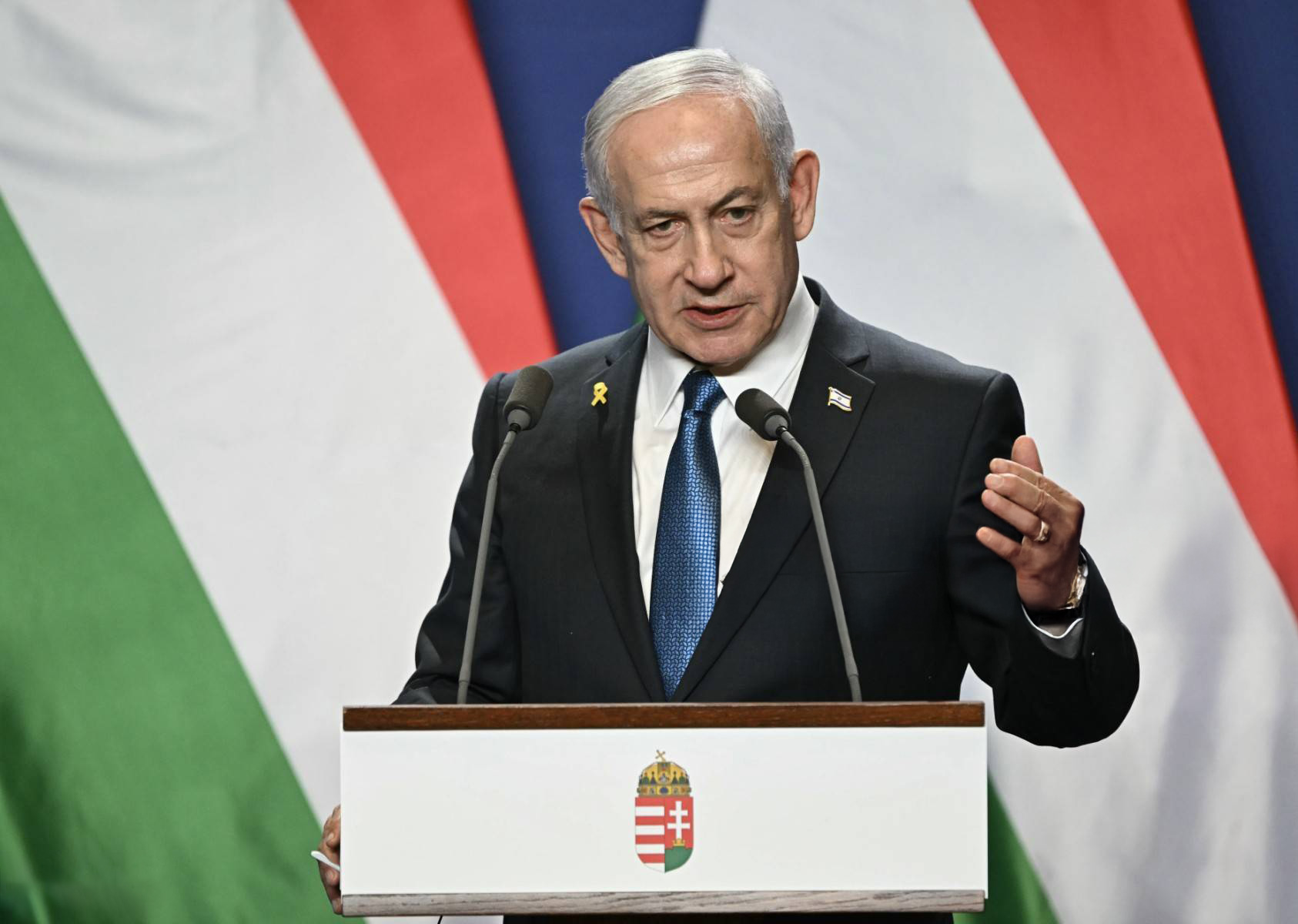Netanyahu: Israel Reshaped the Middle East and Will Continue Confronting Iran
Addressing the Iranian threat, Netanyahu stressed the necessity of neutralizing Iran’s nuclear ambitions, warning that Tehran poses a danger to both Israel and the wider free world.

ERBIL (Kurdistan24) – Israeli Prime Minister Benjamin Netanyahu on Sunday declared that Israel has successfully altered the dynamics of the Middle East through its recent military operations, while reaffirming that his country will persist in countering Iranian influence across the region.
"We Changed the Face of the Middle East," Netanyahu Says
Speaking during a televised address, Netanyahu asserted that Israel’s military campaigns have significantly shifted the regional balance of power. He revealed that Israeli forces thwarted coordinated plans between Hezbollah and Hamas leader Yahya Sinwar aimed at targeting Israeli interests.
Highlighting recent achievements, Netanyahu confirmed that Israel had seized control of the Philadelphi Corridor — a vital smuggling route — thereby tightening the blockade on Gaza and curbing the flow of weapons into the strip. "We will not allow the State of Israel to be defeated," he said firmly.
Netanyahu also disclosed that he rejected U.S. President Joe Biden’s request to restrict Israel’s military operations in Gaza to airstrikes only, emphasizing that Israel is "not a vassal state" and will act independently to defend its security.
Escalation in Lebanon: "We Shocked Hezbollah"
Addressing the northern front, Netanyahu noted that Israel expanded its operations into Lebanon following Hezbollah’s entry into the ongoing conflict. He cited the execution of "Operation Beyger," a high-impact military action that, according to Netanyahu, "shocked Hezbollah" and resulted in the elimination of several senior Hezbollah commanders. He stressed that the operation was carried out without prior notification to the United States.
The Israeli Prime Minister further claimed that Israel successfully destroyed a large cache of missiles and weaponry Hezbollah had been amassing for three decades. He described the targeting and elimination of Hezbollah leader Hassan Nasrallah as "a crippling blow to the axis of resistance."
On Syria: 90 Percent of Syrian Army Capabilities Destroyed
Turning to Syria, Netanyahu stated that Israel had "destroyed 90 percent of the former Syrian army’s capabilities." He credited Turkish-backed opposition forces with playing a pivotal role in bringing down the regime of ousted Syrian President Bashar al-Assad, framing their involvement as essential to the collapse of the old Syrian order.
Peace Process: Netanyahu Reaffirms Rejection of Palestinian Statehood
Regarding the Israeli-Palestinian conflict, Netanyahu reiterated his longstanding opposition to the establishment of a Palestinian state, arguing that "the Palestinians seek to establish their state within Israel, not alongside it." He portrayed the Palestinian leadership as "the primary obstacle" to achieving lasting peace in the region.
Confronting Iran: "We Will Not Allow Iran to Possess Nuclear Weapons"
Addressing the Iranian threat, Netanyahu stressed the necessity of neutralizing Iran’s nuclear ambitions, warning that Tehran poses a danger to both Israel and the wider free world. He insisted that any future international agreements with Iran must also address the issue of ballistic missiles, declaring unequivocally: "We will not allow Iran to acquire nuclear weapons."
Netanyahu accused Iran of orchestrating "barbaric attacks" against Israel, labeling Tehran as "the principal engine behind regional aggression." He further claimed that Israel’s actions had "broken the Iranian axis" but acknowledged that "much work remains to be done."
Safeguarding the Middle East from Collapse
Netanyahu concluded by asserting that Israel’s efforts were critical in preventing the Middle East from descending into chaos, attributing recent regional stabilization to Israel’s successful confrontations against Iranian expansionism. He also highlighted Israel’s role in expanding the circle of peace by normalizing relations with several Arab states.
